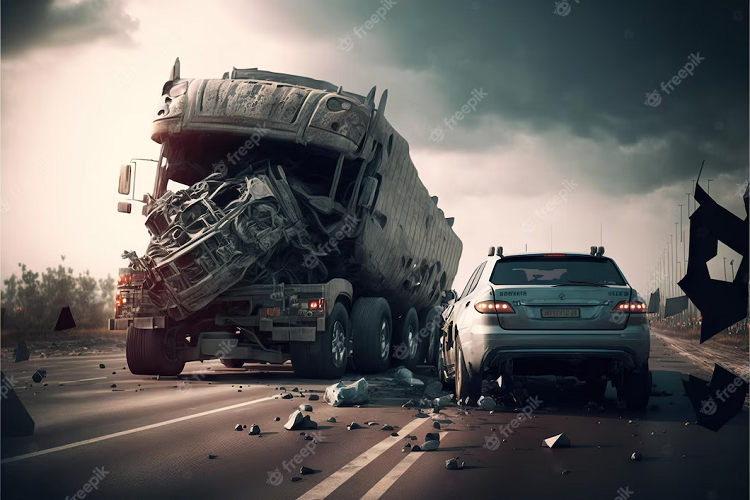
7 Common Mistakes You Need To Avoid If You’ve Been Involved In A Truck Accident
Getting into any kind of road accident is stressful. But when it involves a truck, the stakes are even higher. These aren’t just minor fender benders. A collision with a truck can lead to serious injuries, major financial fallout, and long-term consequences that stretch far beyond the initial crash.
And yet, many people, often unintentionally, make mistakes in the aftermath that end up costing them a lot more than they realize. These aren’t just harmless oversights. They can seriously impact your health, your legal standing, and your ability to recover damages.
Here are some of the most common mistakes people make after a truck accident. If you’ve been in one, avoiding these could make a huge difference.
Table of Content
- 1 1. Not getting legal help
- 2 2. Saying too much at the scene
- 3 3. Not calling the police
- 4 4. Refusing medical attention or delaying care
- 5 5. Talking to insurance companies without preparation
- 6 6. Not documenting the crash properly
- 7 7. Assuming the truck driver is automatically at fault
- 8 Protecting Yourself Starts With Awareness
1. Not getting legal help
This is a big one. Too many people try to handle things on their own or think hiring a lawyer will be too expensive. The truth is, truck accidents are not like regular car crashes. There are often multiple parties involved, such as drivers, trucking companies, insurers, and sometimes even manufacturers or logistics providers. And every one of them is looking to protect their interests.
Trying to deal with all of that without legal help is like stepping into a maze blindfolded. You won’t just risk missing out on compensation. You could also say or do something that weakens your position without even realizing it.
Even if you think the facts are clear, the legal process isn’t. Zinda Law Group’s truck accident lawyers in Houston understand the tactics insurance companies use, the laws that apply to commercial vehicles, and how to properly investigate what really happened. That kind of support can make all the difference in your outcome.
2. Saying too much at the scene
When emotions are running high, it’s natural to want to explain yourself, give your side, or even apologize, especially if someone’s hurt. But what you say at the scene can absolutely come back to bite you later.
Even a simple “I’m sorry” can be twisted to sound like an admission of fault. And if there are legal or insurance claims down the line, those offhand comments might be used against you.
The best approach? Keep things simple. Make sure everyone is safe, call emergency services, and exchange information. Beyond that, it’s better to say less and let your legal representative handle the rest.
3. Not calling the police
In some accidents, people agree to handle things privately. That’s never a good idea with a truck involved. Always call the police.
You need a formal police report. It provides an objective account of what happened, helps document injuries and damage, and becomes an important piece of evidence if any disputes arise later.
If you don’t have a report, it’s your word against theirs. And that’s a risky position to be in, especially if the other driver or their employer tries to shift blame.
4. Refusing medical attention or delaying care
One of the most common mistakes? Thinking you’re “fine” and not seeing a doctor. After a serious crash, adrenaline can mask pain. You might not feel anything right away, but that doesn’t mean you’re in the clear. Neck and back injuries, internal trauma, and even concussions can take time to show up.
If you don’t get checked out right away, insurers might later argue that your injuries weren’t serious or weren’t even caused by the accident. It’s not just about your health. It’s about protecting your claim.
Always get examined by a medical professional, even if you feel okay. Keep records of everything—visits, diagnoses, treatments, and follow-ups. This all helps support your case and ensures you’re actually getting the care you need.
5. Talking to insurance companies without preparation
It’s easy to underestimate how tricky insurance conversations can be. They might sound friendly, but their goal is often to minimize what they pay out.
They may ask for a recorded statement or try to get you to agree to a quick settlement. And if you’re not prepared, you could say something that undermines your position or accept far less than you’re entitled to.
Never agree to any settlement or make detailed statements without speaking to your legal team first. Once you accept an offer or make a recorded statement, you may not be able to undo it.
6. Not documenting the crash properly
The more information you gather at the scene, the better. In the confusion, a lot of people forget to take photos or write down details. But these small steps can make a big difference when it’s time to prove what happened.
If you’re able to, take photos of:
- Vehicle damage
- License plates
- Road conditions
- Skid marks
- Traffic signs or signals nearby
- Injuries (if appropriate)
Also, get the contact information of any witnesses. They can back up your version of events later.
The more thorough you are in documenting things, the less room there is for doubt or disputes down the line.
7. Assuming the truck driver is automatically at fault
It’s tempting to think the larger vehicle must be to blame. But legally, that’s not how it works.
Just because it was a truck doesn’t mean the driver or their company is automatically liable. Fault is determined based on evidence, not vehicle size. And if you assume too much, or build your entire claim on that assumption, you could weaken your case.
Let the investigation and facts do the work. Focus on gathering solid information and leave assumptions out of it.
Protecting Yourself Starts With Awareness
Truck accidents are complex, both physically and legally. There are more people involved, more at stake, and often more pressure to settle quickly. That’s exactly why it’s so important to avoid these common pitfalls.
What you do in the hours, days, and weeks after the crash matters. And getting the right advice, support, and documentation early on can make a huge difference in how things play out.
If you’ve been involved in a truck accident, don’t leave things to chance. Be cautious, be informed, and don’t be afraid to ask for help. It’s not just about winning a case: it’s about protecting your future.


